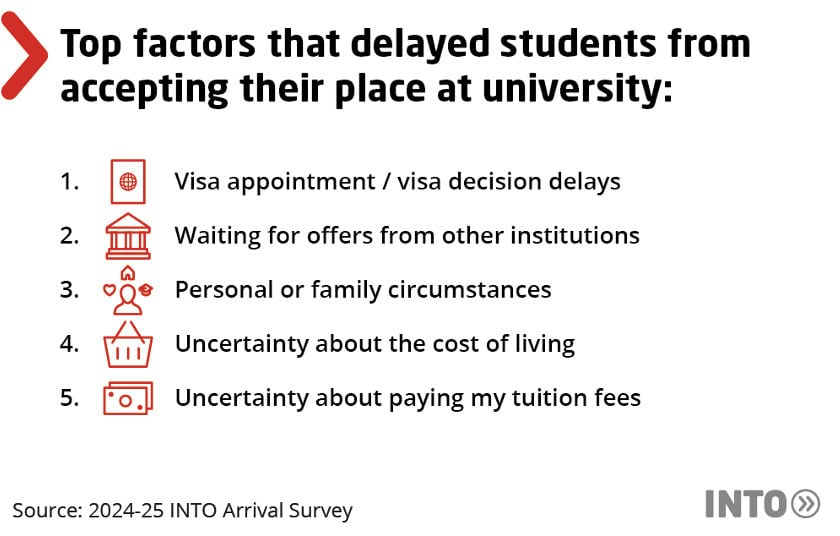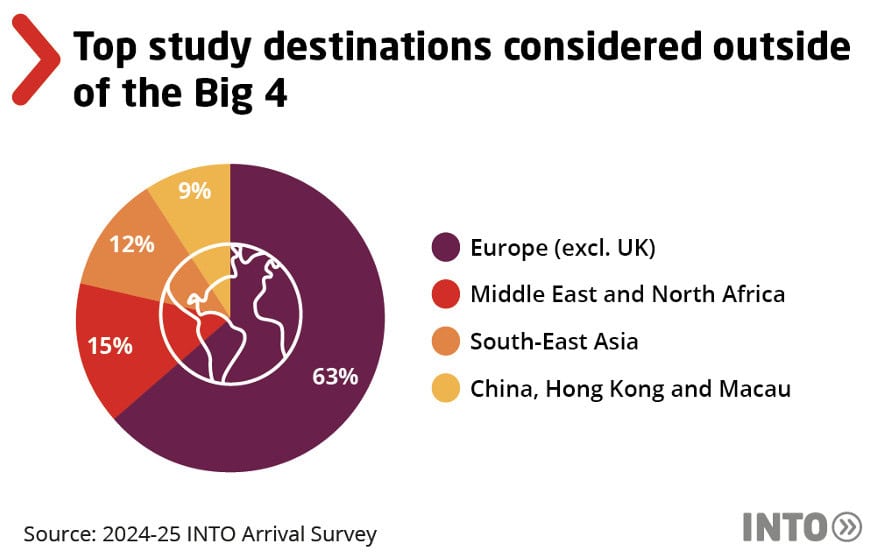A survey of over 2,000 international students from more than 100 countries has highlighted the impact of visa processing delays on students’ experience of studying in the UK and US.
Some 60% of students experienced a delay that prevented them confirming their university place as early as desired, the survey by INTO showed, with 21% of students reporting visa appointment and processing delays as the top reason for postponing their confirmation of university placement.
This issue was particularly acute in South Asia, where 28% of students cited visa delays as a primary obstacle.
The report revealed that these challenges extend beyond confirmation, as visa processing delays also disrupt orientation attendance – 45% of students who missed orientation cited delayed visa approvals as the reason.

“These findings serve as a powerful message for governments, educational authorities and universities to work together in addressing visa delays, ensuring students are supported in their aspirations to study abroad,” said John Sykes, CEO of INTO.
These findings serve as a powerful message for governments, educational authorities, and universities to work together in addressing visa delay
John Sykes, INTO
Elsewhere, INTO’s research highlighted increasing competition among study destinations. Over half of students considered alternative destinations before choosing the UK or US, with over 40% of those considering alternatives beyond the traditional ‘Big Four’— the UK, US, Canada, and Australia.

Beyond Europe, student preferences followed similar regional patterns identified in INTO’s 2024 Global Agent Survey. Students from East Asia were most likely to consider Singapore and Malaysia, while students from the Middle East and North Africa mainly looked to the United Arab Emirates, Kuwait and Saudi Arabia, and students from China, Hong Kong and the Macau region gravitated towards Hong Kong.
Insights from INTO’s research reveal that for students heading to the UK and US, securing internships, gaining professional experience and connecting with employers are top priorities.
Around 50% expressed that they plan to participate in work placements during their studies, while one-third intend to pursue post-study work opportunities through programs like the Graduate Route in the UK and OPT in the US.
Post-study work visas were most routinely cited by students from East Asia and South Asia.
Meanwhile, one quarter of students intend to return home immediately after graduation.
“This data reflects the growing emphasis on preparing students for the workforce in an increasingly competitive global job market and the critical role of employability-focused initiatives in attracting and retaining students,” a spokesperson for INTO said.
“It also highlights the importance of ongoing support throughout their studies, ensuring access to work opportunities and career development while living in their chosen study destination.”
While university rankings remained the most cited driver of student choice, it featured less prominently than in prior years. Meanwhile, factors such as personal safety and employability have grown in importance over the past three years.
Notably, work experience opportunities are now the second-highest priority for South Asian students, while personal safety is a key consideration in the Middle East.




